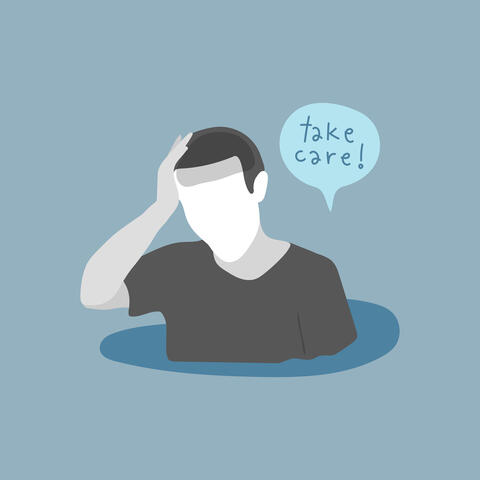
8 Oct 2025 ● Stuart Walker
Why Men’s Mental Health Became My Focus (and What Training Did Not Teach Me)

Integrative therapist, Stuart Walker reflects on why men’s mental health became the focus of his practice and highlights the gaps in traditional counselling training when it comes to supporting men.
Drawing on his experiences in placements and the therapy room, Stuart explores how stigma, silence, and unspoken societal rules impact men’s emotional wellbeing. The post offers insights into creating safer spaces for men to express themselves and emphasises the importance of addressing men’s mental health in both personal and workplace settings.
Early Counselling Training and the Gap in Men’s Mental Health Education
When I first started training as a counsellor, I thought the hardest part would be mastering theory, learning to sit with silence, or writing enough on a criteria to get the green tick that I awarded myself. But one of the things that stayed with me most was realising how rarely men’s mental health, as a stand-alone topic, was spoken about in training rooms, in placements, amongst my peers. It became clear early on that this was where I wanted to focus. Not because it was easy, but because it felt overlooked.
The Impact of Upbringing on Men’s Emotional Expression
Part of that comes from my own upbringing. Being a man of a certain age meant growing up with phrases like “big boys don’t cry,” “pull your socks up,” and “man up.” That was the air we breathed. You learned quickly to hide emotions, to stay tough, to keep going no matter what. Stoic men acting stoically and not always asking for the help that they might need, rather looking after everyone else before they looked after themselves.
In England and Wales, 75% of suicides are males with the highest men’s suicide rate being between the ages of 40 to 49.
— Samaritans

Unspoken Rules and Emotional Silence in the Therapy Room
During my placement I realised how many of the men I met were still carrying those same unspoken rules. Decades later, the message had sunk so deep that even in the counselling room they struggled to find the words, even when they had the 'permission'. Some would arrive full of nerves, apologising before they had even sat down. Others carried decades of silence, unsure if they were even “allowed” to talk about how badly they were struggling.
Challenges of Helping Men Identify Their Emotions
Some clients even asked me not to say, “How does that make you feel?” For them, the thought was clear: “How can I talk about a feeling I do not yet understand?” Those moments really stayed with me, because they showed me just how wide the gap can be between my expectation that someone would open up and the reality of speaking to someone who had never been given the language to describe their emotions in the first place.
Evidence shows many men are reaching out for help but not getting the support they need. A study of middle-aged men who died by suicide showed 91% had previously sought medical help. This staggering statistic proves that the current “just talk” approach is failing men.
— MANUP?

Men’s Mental Health Beyond the Counselling Room
Training had prepared me for client work in theory. What it had not prepared me for was the sheer weight of stigma, silence, and shame that so many men brought with them.
The truth is, men do not leave those unspoken rules at the counselling room door. They carry them into workplaces too, into boardrooms, building sites, offices, and factory floors.
Why Supporting Men’s Mental Health Matters for Everyone
If we want healthier organisations, we have to create cultures where men feel safe to bring their whole selves. That does not mean forcing emotion, but it does mean giving permission: space to talk, space not to be okay, and space to learn a new language for what they feel.
Supporting men’s mental health is not a niche. It is central to building workplaces and communities that thrive.

About Stuart Walker
Stuart is an integrative humanistic counsellor specialising in men’s mental health, bereavement, and postvention support after suicide. He is the founder of Me In Time Counselling & Coaching and has extensive experience working across private and public sectors in coaching, mentoring, and therapeutic roles.
A registered member of BACP, Stuart is committed to creating safe, non-judgmental spaces where clients can explore their challenges and develop meaningful strategies for coping and growth.
Connect on LinkedIn
Free training courses
These courses will give you an understanding of the different mental health problems such as learning about stress, depression, anxiety and PTSD. You will learn the signs and symptoms, and triggers of poor mental health that have an impact on men.
Note: If you already hold this certificate, you won’t be eligible for funding for these courses.

Level 2 Certificate in Awareness of Men's Mental Health Problems
This course is funded by the government's Adult Skills Fund, which means you may be eligible to study for free. Accredited by NCFE CACHE, upon completion of this course you will receive the 'Level 2 Certificate in Awareness of Mental Health Problems'.
This course would be important for job roles such as Social Work Assistant (£12,500 to £25,00 per year) or Mental Health Nurse (£25,654 to £45,838 per year).

Awareness of Men's Mental Health Level 2 Course
Our Awareness of Mental Health Problems Men’s free online course will introduce you to a wide range of different mental health problems affecting men. Within the UK, three times as many men as women die by suicide.
You can get a qualification accredited by NCFE CACHE, (equivalent to GCSE-level qualifications) in as little as up to 10 weeks for free. Level 2 courses typically lasting up to 10 weeks and Level 3 courses between 12 to 15 weeks.
By committing 5-10 hours per week, you’ll boost your CV and increase your chances of finding job opportunities or an apprenticeship.

Free Online Mental Health First Aid Course with Level 2 Certificate
This free online mental health first aid (MHFA) course equips you with the confidence, skills, and qualification to support others with mental ill health. You will explore mentally healthy environments, develop wellness action plans and discover how to protect your own mental health.
The MHFA training includes a certificate and is accredited at level 2. It features flexible learning, expert support, and no exams.

Level 2 Mental Health Awareness - Understanding Men's Mental Health Issues
It's important for individuals to be able to support those struggling with mental illness. Men's mental health is particularly concerning, as studies have revealed that men are less likely to seek help for mental health issues compared to women.
This free course will give you:
- A nationally recognised Level 2 qualification that builds your knowledge and skills.
- Flexible, self-paced learning that fits around your job, family life, and daily commitments.
- Complete the course online with clear, accessible content in manageable sections.
- Strengthen your CV and unlock new opportunities in work, study, or personal growth.


